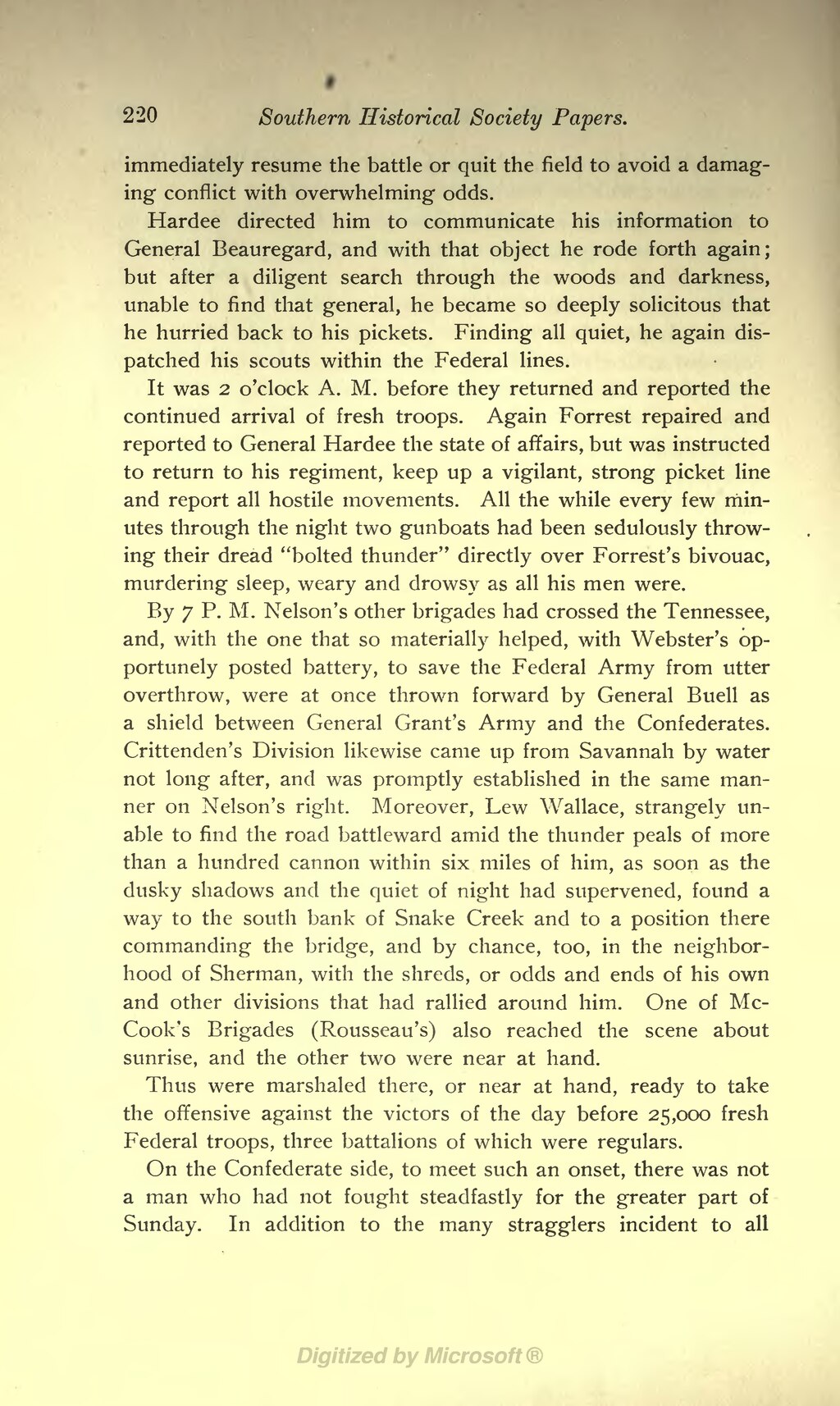immediately resume the battle or quit the field to avoid a damaging conflict with overwhelming odds.
Hardee directed him to communicate his information to General Beauregard, and with that object he rode forth again; but after a diligent search through the woods and darkness, unable to find that general, he became so deeply solicitous that he hurried back to his pickets. Finding all quiet, he again dispatched his scouts within the Federal lines.
It was 2 o'clock A. M. before they returned and reported the continued arrival of fresh troops. Again Forrest repaired and reported to General Hardee the state of affairs, but was instructed to return to his regiment, keep up a vigilant, strong picket line and report all hostile movements. All the while every few minutes through the night two gunboats had been sedulously throwing their dread "bolted thunder" directly over Forrest's bivouac, murdering sleep, weary and drowsy as all his men were.
By 7 P. M. Nelson's other brigades had crossed the Tennessee, and, with the one that so materially helped, with Webster's opportunely posted battery, to save the Federal Army from utter overthrow, were at once thrown forward by General Buell as a shield between General Grant's Army and the Confederates. Crittenden's Division likewise came up from Savannah by water not long after, and was promptly established in the same manner on Nelson's right. Moreover, Lew Wallace, strangely unable to find the road battleward amid the thunder peals of more than a hundred cannon within six miles of him, as soon as the dusky shadows and the quiet of night had supervened, found a way to the south bank of Snake Creek and to a position there commanding the bridge, and by chance, too, in the neighborhood of Sherman, with the shreds, or odds and ends of his own and other divisions that had rallied around him. One of McCook's Brigades (Rousseau's) also reached the scene about sunrise, and the other two were near at hand.
Thus were marshaled there, or near at hand, ready to take the offensive against the victors of the day before 25,000 fresh Federal troops, three battalions of which were regulars.
On the Confederate side, to meet such an onset, there was not a man who had not fought steadfastly for the greater part of Sunday. In addition to the many stragglers incident to all
